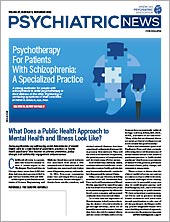The COVID-19 pandemic precipitated many transformations and changes within the health care industry. As a result, the pursuit of innovation in patient care is a greater priority, giving rise to new and emerging health care trends that are forcing the industry to reinvent itself to stay atop of the constantly changing needs.
Use of Technology to Deliver Cost-Effective Care
The disruption of the traditional medical visit caused by the pandemic made patients and health care professionals rely more heavily on digital health to receive and deliver care. This increased technological utilization and reliance must come with awareness that innovation may create or enhance potential risks, including patient harm and privacy and confidentiality breaches.
Health Equity
The COVID-19 pandemic magnified existing patterns of systemic health inequities. Encouraging patients to provide accurate demographic information and urging health care professionals to identify means of increased cultural competency are essential to influence positive health outcomes. Cultural competency helps avoid potential failures to diagnose incidents related to cultural bias.
Artificial Intelligence
Advances made over the past few years in the areas of artificial intelligence (AI) and data analytics have uncovered even more potential health care opportunities. While AI’s impact on society remains an ongoing ethical debate, supporters maintain that it improves the quality of everyday life. AI is unquestionably a valuable tool in health care, but it bears the risk of causing societal harm. AI vendors and developers must continue to recognize that health inequities exist, and bias must be prevented from entering AI systems; otherwise, it could exacerbate concerns related to data accuracy, health equity, and safety.
Workforce Shortage
The American College of Healthcare Executives’ survey titled “Top Issues Confronting Hospitals in 2021” revealed that staffing shortages have replaced financial challenges as CEOs’ top concern. Workforce shortages are driving (and will continue to be one of the drivers of) overall health care costs. Practices must continue allocating resources for workforce retention to continuously meet patient needs.
Scope of Practice Expansion for Advanced Practice Practitioners
While the pandemic underscored problems with access and provider shortages, the push for expansion of scope of practice for advanced practice practitioners (APPs) continues to spark debate within state legislatures and medical communities.
Health Law
A number of factors could impact health law, including the following:
•
No Surprises Act: The No Surprises Act was signed into law to promote greater transparency for consumers. The law requires significant changes in operations and patient communications, and health care professionals must ensure changes are implemented and comply with the requirements of the law.
•
Consolidation: “Top 10 Issues in Health Law 2022” published in Health Law Connections, stated that behavioral health transactions accelerated by the pandemic led to greater exposure of the behavioral health market to consolidation. It cited improved outcomes and overall cost savings as the primary incentives for consolidation. It also predicted that a strong behavioral health market consolidation will entice more talent to the profession, thereby bringing about permanent resolution to chronic provider shortages in behavioral health.
Trends like AI, market consolidation, and technology-led care advancements aim to improve the quality of health care and population’s health. Staying on top of current health care trends is a must for health care professionals as changes in the health care system show no signs of slowing down. Staying abreast of these issues should ensure that risk mitigation strategies are proactively in place within your practice setting. ■
This information is provided as a risk management resource for Allied World policyholders and should not be construed as legal or clinical advice. This material may not be reproduced or distributed without the express, written permission of Allied World Assurance Company Holdings Ltd., a Fairfax company (“Allied World”). Risk management services are provided by or arranged through AWAC Services Company, a member company of Allied World. © 2022 Allied World Assurance Company Holdings, Ltd. All Rights Reserved.


